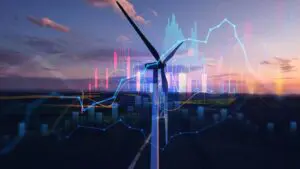Australians grossly overestimate the proportion of people who deny that climate change is happening, a CSIRO study has found.
The study, published today in the journal Nature Climate Change, surveyed over 5000 Australians over two years.
In response to the question, ‘Which of the following statements best describes your thoughts on climate change?’ people chose from: ‘I don’t think that climate change ‘is happening’; ‘I have no idea whether climate change is happening or not’; ‘I think that climate change is happening, but it’s just a natural fluctuation in Earth’s temperatures’; ‘I think that climate change is happening, and I think that humans are largely causing it’.
Respondents were also asked to estimate the proportion of people who would select each answer.
In 2010, respondents estimated that 21.6% of Australians believed climate change was not happening, when in fact only 5.6% of respondents said it was not happening.
In 2011, respondents estimated that 23% of Australians believed climate change was not happening, when the actual proportion who think it was not happening was 7.2%.
The report also found that whatever your opinion on climate change, most people estimate their own view to be the most common.
“The cues and messages we pick up in our external environment can influence our opinions. No one likes to think they are alone in their opinion,” said lead researcher Zoe Leviston, a social scientist at the CSIRO.
A disproportionate amount of media airtime given to climate sceptics may lead some people to overestimate the prevalence of that view, she said.
“That journalistic tradition of giving equal eight to both sides of the story is a noble sentiment but it can lead to these consensus effects,” she said.
Will J Grant from the Australian National Centre for the Public Awareness of Science at the Australian National University said powerful interests promoted the voices of climate sceptics.
“Empty vessels make the most noise. It’s in economic interests of certain actions to promote these empty vessels,” said Dr Grant, who was not involved in the study.
Sunanda Creagh is an editor at The Conversation. This article was originally published on The Conversation – theconversation.edu.au. Reproduced with permission.







